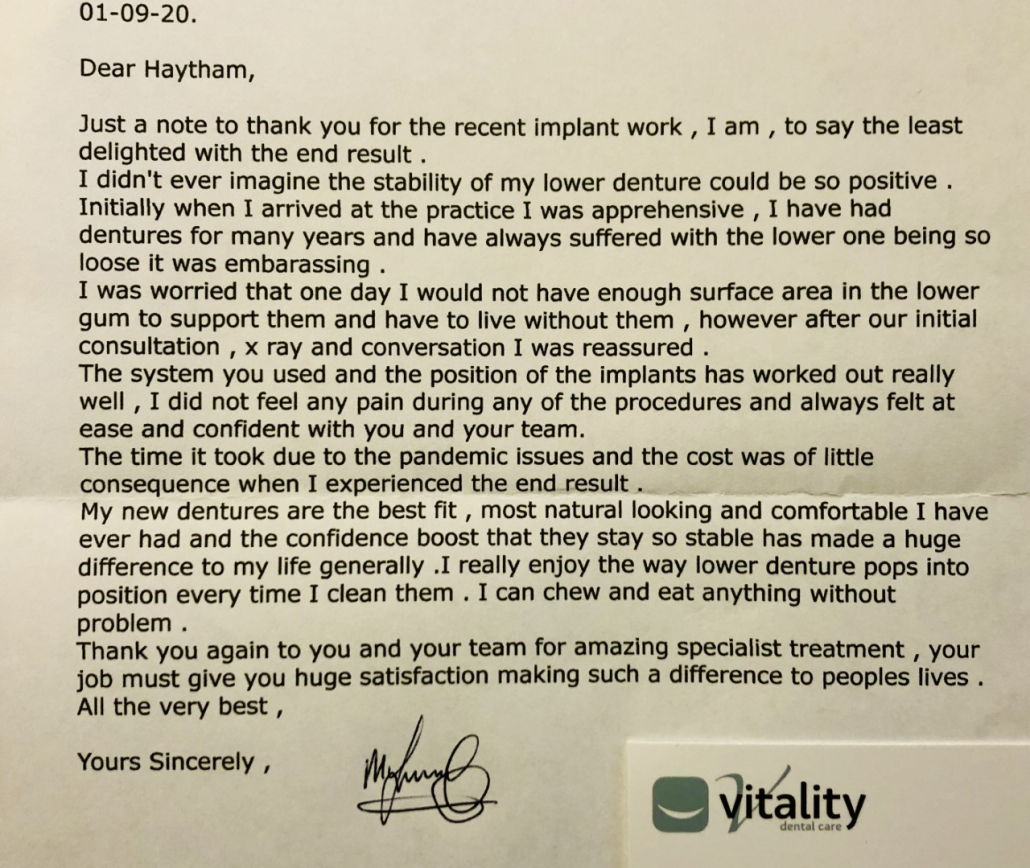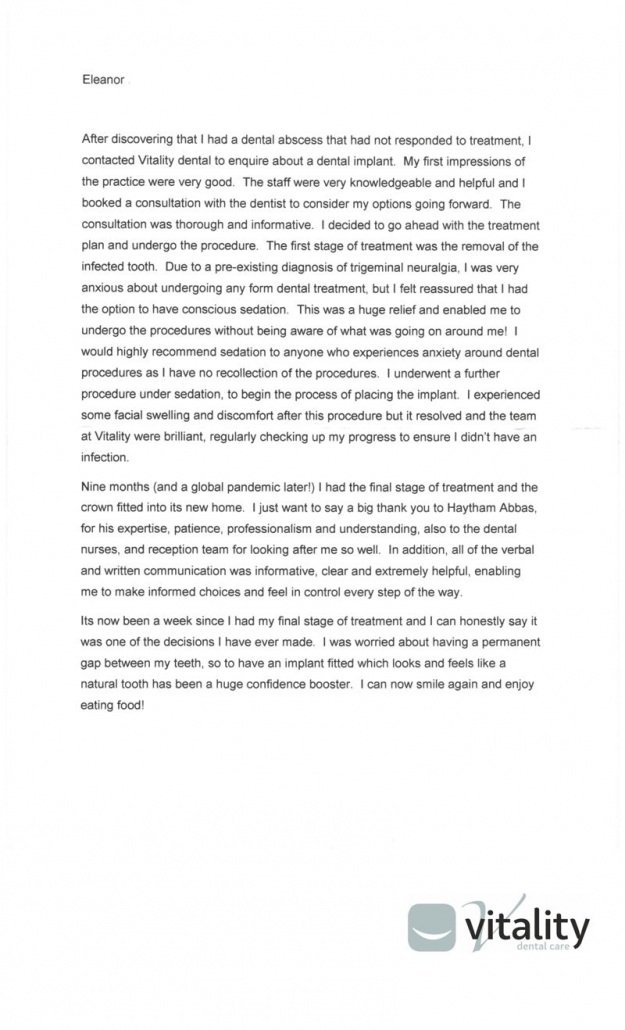Dental Implants
Fed up of gaps in your smile? let us help bring back your confidence with dental implants, the closest feeling to having your natural teeth back.
If you have multiple missing teeth, dental implants can be used to secure bridges or dentures.
This treatment is similar to a conventional bridge but instead of attaching the bridge to existing teeth, they are attached to the implant. This means they are much stronger and more reliable, enabling you to forget about your teeth and enjoy eating, talking, laughing and smiling as you did before.
A fixed bridge can support a number of missing teeth up to a full arch of teeth.
Dr Haytham Abbas BDS MFDS RCS Eng Dip Implants, performs dental implant treatment at Vitality Dental Care Northallerton. He also provides sedation for patients who are extremely nervous.


Dental Implants start from £2500 and are available on Interest free credit to help spread the cost of treatment.
That’s only £139 per month for 18 months, with 0% APR.
Missing teeth can cause a problem with lost bone and gum around the remaining teeth and may lead to a problem with eating and the functioning of the jaw. The gaps can place extra pressure on remaining teeth especially on the opposite jaw, causing premature wear.
Dental Implants are a well-established, tried-and-tested treatment. In excess of 90% of modern implants last for at least 15 years.
Placing the implants requires a small operation which can be carried out under local anaesthetic. You will not feel any pain at the time, but you may feel some discomfort during the week following the surgery. The after-effects of having implants placed are usually mild and may include slight bruising, dull ache and swelling. The effects vary, depending on the number of implants placed.
It depends on the bone density in your jaw and the health of your gums. At the consultation your clinician will assess the health of your gums, the density of your bone and in some cases, you may require a CT Scan. The CT scan provides a 3D image of all regions of the upper and/or lower jaw from which precise measurements can be taken for pre-operative treatment planning. In some cases the CT scan may also be used to evaluate the results of bone grafting procedures prior to placing implants.
Sometimes treatment is required before you are ready for implants. Implants survive best in a healthy mouth. Tooth decay or gum problems need to be corrected before implants are placed to give them the best chance of success.
This depends on the complexity of the treatment. Initially there is a planning stage, then some time may be spent on preparatory procedures such as improving gum health, removing any unsavable teeth and growing bone. After the implants are placed they are left to settle in place from three to six months. The final fitting of crowns or bridges or the attaching of dentures to the implants takes a month or two.
The time depends on your individual situation. It is important that neither the patient nor the implant provider attempt to rush the treatment or try to advance the various stages faster than the time required for complete healing and maturation of the bone and soft-tissues.
Cleaning around the teeth attached to the dental implants is no more difficult than cleaning natural teeth. It is really important to have a good oral hygiene routine to maintain both your implanted and natural teeth.
You will need a consulation with Dr Abbas, to assess your suitability for dental implants. You can book a free video consultation here
Or you may prefer to complete our enquiry form and have someone call you back.